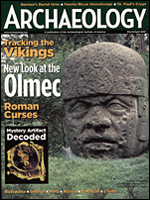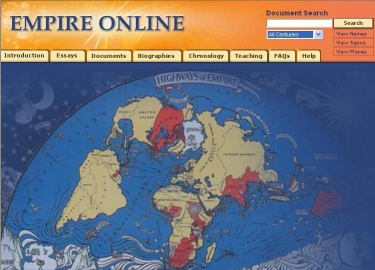March 14th, 2007 by Susan Atkey | No Comments »
A reminder about the Dorothy Thompson Memorial Lecture tomorrow by Professor Colin Renfrew, Lord Renfrew of Kaimsthorn on:
The Indo-European Problem and the Origins of Linguistic Diversity
Lecture Abstract: “The Indo-European language family is one of the largest in the world in terms both of speakers and the great expanse of territory in which they live. The explanation for this large distribution takes one back to prehistoric times and poses archaeological problems which remain unresolved. In this lecture, the traditional view that the proto Indo-European language was dispersed through most of Europe by mounted warrior nomads from the steppe lands north of the Black Sea, at the beginning of the Bronze Age, is called into question. The alternative view that proto Indo-European speakers accompanied the spread of farming from Anatolia, the modern Turkey, some 3,000 years earlier is instead proposed. This is a specific case of the farming/language dispersal model which is of wider relevance. Current controversies concerning the origins of linguistic diversity will be reviewed.”
Thursday, March 15, 2007, 3:30 p.m.
Leonard S. Klinck (LSK) Building, Room 201
Lord Renfrew is an internationally renowned archaeologist. Among his many books, perhaps best known are his The Emergence of Civilisation (1972), Before Civilisation: the Radiocarbon Revolution and Prehistoric Europe (1973), Archaeology and Language: The Puzzle of Indo- European Origins (1987) , and Archaeology: Theories, Methods and Practice (with P. Bahn), the textbook for Anth 305.
Posted in Talks and Seminars | No Comments »
March 13th, 2007 by Susan Atkey | No Comments »
The Center for India and South Asia Research is delighted to announce that Akhil Gupta, prominent anthropologist of development, modernity, and postcolonial South Asia, will be speaking here at UBC this week on the topic of:
“Literacy and Democracy: Notes from Anthropological Observations in Rural India”
Thursday, March 15, 2007, 11:30 – 1 PM
Room 120, C.K. Choi Building (1855 West Mall)
Akhil Gupta is Professor of Anthropology at the University of California, Los Angeles. He is the author of Red Tape: Corruption, Inscription and Governmentality in Rural India (forthcoming, Duke), and Postcolonial Developments: Agriculture in the Making of Modern India (Duke, 1998), and has edited The Anthropology of the State (Blackwell, 2006), Caste and Outcast (2002), Culture, Power, Place (1997), and Anthropological Locations (1997).
Posted in Talks and Seminars | No Comments »
March 10th, 2007 by Susan Atkey | No Comments »

The website for Archaeology Magazine is well worth a look. Jam-packed with informative features, the site includes extras not found in the journal such as an “Interactive Digs” section with frequently updated field notes, Q&A with archaeologists, personal journals, plus the latest archaeological headlines, updated every weekday.
UBC Library subscribes to Archaeology in print and online.

Posted in Archaeology, Electronic Resources | No Comments »
March 7th, 2007 by Susan Atkey | No Comments »

Empire Online is a new resource that features original documents relating to Empire Studies, sourced from libraries and archives around the world. Essays and documents are grouped in five thematic sections:
Section I: Cultural Contacts, 1492-1969
Section II: Empire Writing & the Literature of Empire
Section III: The Visible Empire
Section IV: Religion & Empire
Section V: Race, Class, Imperialism and Colonialism c1607-2007
Each section includes thematic essays by leading scholars in the field. The essays relate directly to the source material covered by the online publication with 30-50 links per essay to documentary evidence.
Browsing is available by Name, Topics, or Places. For a sample, have a look at what’s available under:
Name: Rhodes or Gandhi
Topic: Maori Culture or Treatment of Twins
Place: Vancouver Island or Korea
(Note: As this is a resource licensed by UBC Library for UBC students, faculty, and staff, you’ll need to access it either on campus or off campus through the VPN. Setup instructions are here.)
Posted in Electronic Resources, What's New? | No Comments »
March 6th, 2007 by Susan Atkey | No Comments »
Dr. Kelly Bannister (Director, POLIS Project on Ecological Governance, U Victoria) gives a talk in the ANSO building this Thursday on:
The Nexus of Biodiversity and Traditional Knowledge
The role of traditional knowledge in biodiversity science and decision-making has peaked serious interest by governments, policy-makers, academics, Indigenous communities and others around the world. However, despite increasing agreement in principle that combining western scientific and traditional knowledge systems may better address some emergent human and ecosystem health problems, relatively little progress has been made in practice or in developing policies and infrastructure to support such practice. The role of ethical and quasi-legal instruments, such as research protocols and codes, are receiving significant attention at local to international levels for their potential to address a number of challenges that lie at this nexus of principle-policy-practice involving biodiversity and traditional knowledge. Are such instruments tools for building cross-cultural relationships, democratizing biodiversity science and empowering communities in decision-making, or do they serve to bureaucratize the research enterprise?
Thursday, March 8 2007 – 5:00 – 6:30 pm in ANSO 2107.
Forests and Oceans for the Future Speakers Series
Posted in Talks and Seminars | No Comments »
March 6th, 2007 by Susan Atkey | No Comments »
Professor Kyoung-Mann Cho (Anthropology, Mokpo National University, Korea) gives a talk in the ANSO building this Thursday on:
What Does the River Mean for You? People’s Notions of Nature and Aboriginal Rights in Contemporary Chehalis, BC
This research is on notions of nature in Chehalis, BC. In preliminary fieldwork a simple question has been asked: “what does the river mean to you?” The ‘river’ not only represents the Harrison river itself, which the Chehalis depend on, but also the ecological, spiritual linkages of river, forest, earth, salmon and other livings including human beings. The river also symbolizes the Chehalis territory from the ancestors beyond the present administrative one, i.e. the reservation. This research focusses on Chehalis ways of explaining their notions of the ‘river’ and their ways of claiming aboriginal rights. The notion of ‘oneness’ or harmony between nature and culture, between natural surroundings and human existence will be reconsidered.
The interim report of this fieldwork will suggest some basic reflexive questions. Is there a discrepancy between ideal notions of oneness and practical, objective exploitation? How do Chehalis residents understand these issues?
Thursday, March 8, 2007 in ANSO 205
Posted in Talks and Seminars | No Comments »
March 5th, 2007 by Susan Atkey | No Comments »
Dr. Nefissa Naguib (Social Anthropology, University of Bergen, Norway) gives a talk this week called “Visitors: Armenian Orphans in Jerusalem” ( Tuesday March 6, 5pm, Green College).
A lecture on how genocide, loss and deportation are experienced, conceptualized and generated among Armenians in Jerusalem, based on Dr. Naguib’s fieldwork and ongoing research on the Armenian Diaspora. Her presentation will focus upon the deportation of Armenians from Eastern Anatolia/now Turkey in 1915 to the Arab provinces of the Ottoman Empire. It will sketch a history of the arrival of orphans and the immediate relief efforts which followed in an attempt to get at the individual stories which will tell us more about impacts of relief efforts on individual lives and how wider forces of history, altered by moments of conflict, are brought to bear on the lives of this community today.
Jointly sponsored by Green College and the Department of Anthropology.
Posted in Talks and Seminars | No Comments »
February 26th, 2007 by Susan Atkey | No Comments »
The Department of Asian Studies and the Center for India and South Asia Research present a talk:
Localized Mythologies and Transnational Mediations: Women’s Oral Poetry from the Himalayan Foothills by Kirin Narayan
Kirin Narayan, Professor of Anthropology at the University of Wisconsin, Madison, is a leading folklorist of South Asia. Her research concerns women’s oral traditions in North India, narrativity and ethnography, and the South Asian diaspora. Her numerous publications include Storytellers, Saints and Scoundrels (winner of the 1990 Victor Turner Prize for Ethnographic Writing), Mondays on the Dark Night of the Moon : Himalayan foothill folktales (1997), and a novel, Love, Stars, and All That (1994).
The talk will be held Wednesday, February 28, 2007 at 4 PM in the Asia Centre, room 604 (show me a map)
Posted in Uncategorized | No Comments »
February 23rd, 2007 by Susan Atkey | No Comments »

The Affiliation of Multicultural Societies and Service Agencies of BC (AMSSA) has developed a database of multicultural health resources with hundreds of Canadian and International publications. The database can be accessed at: http://www.amssa.org/multiculturalhealthyliving/phase2/resources.cfm
A Multicultural Health Directory is also available at: http://www.amssa.org/multiculturalhealthyliving/phase3/index.cfm
Posted in Medical Anthropology | No Comments »
February 19th, 2007 by Susan Atkey | No Comments »
 A new ethnography has arrived that may be of interest to students in ANTH 315, Japanese Culture and Society. “Nature, ritual, and society in Japan’s Ryukyu Islands” by Arne Rokkum presents an ethnographic portrayal of the people of the Southern Ryukyu Islands and their world.
A new ethnography has arrived that may be of interest to students in ANTH 315, Japanese Culture and Society. “Nature, ritual, and society in Japan’s Ryukyu Islands” by Arne Rokkum presents an ethnographic portrayal of the people of the Southern Ryukyu Islands and their world.
For more information, see the publisher’s blurb here or come by and pick up the book at Koerner library call number GN635.R9 R65 2006.
Posted in Uncategorized | No Comments »




 A new ethnography has arrived that may be of interest to students in ANTH 315, Japanese Culture and Society. “
A new ethnography has arrived that may be of interest to students in ANTH 315, Japanese Culture and Society. “